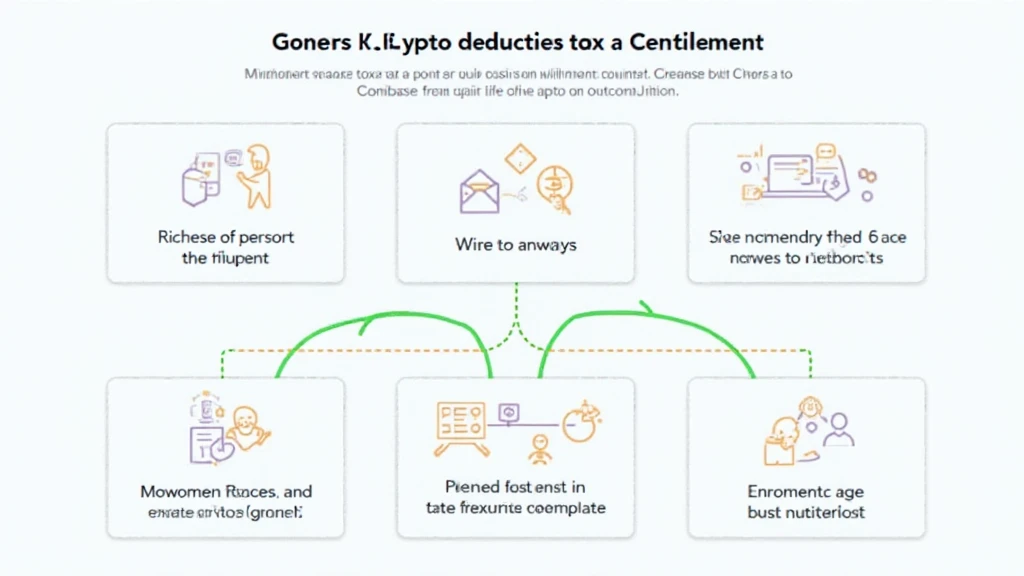Coinbase Crypto Tax Deduction Methods: A Comprehensive Guide
In the rapidly evolving world of cryptocurrency, timely and accurate tax reporting can feel like an uphill battle. With vast sums of money being transacted via platforms like Coinbase, it’s crucial for crypto investors to understand the tax implications attached to their assets. Did you know that in 2024 alone, $4.1 billion was reported lost to DeFi hacks? That statistic underscores the importance of navigating the crypto landscape safely and strategically.
This extensive guide will delve into effective Coinbase crypto tax deduction methods, ensuring you make the most of your digital asset portfolio. Whether you’re a newbie or a seasoned trader, we aim to give you actionable insights that can help you optimize your crypto taxes.
Understanding Crypto Tax Obligations
Before diving into tax deduction methods, let’s clarify the tax obligations that crypto investors typically face. In the United States, the IRS classifies cryptocurrencies as property rather than currency. This classification means that selling, trading, or even using your crypto to purchase goods is considered a taxable event.

- Capital Gains Tax: If you sell your crypto for more than its acquisition cost, you incur capital gains tax. The rate depends on whether the gain is short-term (held for less than a year) or long-term (held for more than a year).
- Record Keeping: Investors must maintain detailed records of their cryptocurrency transactions to accurately report gains and losses.
- Taxable Events: Understand what constitutes a taxable event, including exchanges, sales, and payments.
Coinbase Deduction Strategies
When it comes to minimizing capital gains tax, several viable strategies exist for Coinbase users.
1. Utilize Cryptocurrency Losses
One way to lower your taxable income is by realizing losses on poor-performing coins. You can offset your capital gains by selling these tokens, thereby reducing your overall tax liability.
2. Hold for the Long-Term
By holding your cryptocurrencies for over a year, you can benefit from lower long-term capital gains tax rates in many jurisdictions. For example, while short-term gains can be taxed up to 37%, long-term rates may drop to as low as 0-20% depending on income brackets.
3. Employing a 1031 Exchange (if applicable)
Currently, the IRS does not recognize like-kind exchanges for cryptocurrencies, but staying informed about tax law changes could yield future opportunities for tax deferral strategies similar to a 1031 exchange in real estate.
4. Tax Loss Harvesting
This method involves strategically selling assets that have decreased in value to offset gains from profitable investments. For example, if you bought Bitcoin at $40,000 and now it’s worth $20,000, realizing that loss can help lessen taxes on gains from other sales.
Vietnam Market Insights for Coinbase Users
As cryptocurrency adoption grows worldwide, understanding the local context is critical. In Vietnam, blockchain technology is rapidly gaining traction. In 2023, the country witnessed a 70% increase in active crypto users compared to the previous year. This rising interest highlights the importance of adhering to local regulations while making the best use of cryptocurrency tax deductions.
Practical Tips for Simplifying Tax Calculations
Calculating taxes can be cumbersome, but the following tools can aid in streamlining this process:
- Use Tax Software: Many tax software options have integrations with Coinbase, simplifying income and gains reporting.
- Consult a Tax Professional: Given the complexity of crypto tax laws, a professional tax advisor specializes in cryptocurrency can help tailor strategies specific to your situation.
- Track Transactions: Keep precise records of all crypto transactions, including buys, sells, and exchanges to ease the filing process.
Common Misconceptions About Crypto Taxes
Misunderstandings about crypto taxes can lead to costly mistakes. Let’s dispel a few myths:
- Myth: Cryptocurrencies are not taxable. Reality: Every taxable event involving cryptocurrencies requires reporting and may incur taxes.
- Myth: All cryptocurrencies are subject to the same tax rules. Reality: Different regulations may apply based on your locality and how long you’ve held the asset.
Future Trends in Crypto Taxation
The regulatory environment surrounding cryptocurrency is constantly evolving. International standards for taxation on digital assets are gaining ground. For instance, upcoming reforms may introduce standardized practices that simplify compliance. It is vital to keep an eye on developments in both local and global cryptocurrency policies.
Conclusion: Strategic Tax Planning for Coinbase Users
Strategically managing your Coinbase crypto taxes involves understanding the various aspects of your investments, discerning between taxable events, and implementing effective deduction methods that suit your situation. You must stay informed, engage with local tax professionals, and utilize available resources for optimal outcomes.
By employing these methods strategically, you can significantly mitigate tax liabilities and keep more of your hard-earned profits. Remember, planning is key, and as the crypto landscape continues to shift, so should your strategies. In closing, remember that this guide on Coinbase crypto tax deduction methods can enhance your financial strategy, ensuring you’re well-positioned for both reporting and compliance.
Built with the future in mind, Coinbase remains a robust platform, and leveraging its features wisely may bring significant advantages to your tax strategy.
Disclaimer: The information provided herein is not financial advice. Always consult local regulations and professionals regarding your specific tax situation.





